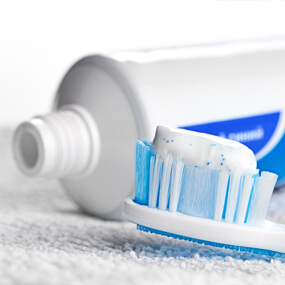Root Cavities: Prevention and Treatment

Cavities are not just for kids. While dental caries are more prevalent in children overall, the prevalence of untreated tooth decay in adults is quite high. In addition, there is a particular type of tooth decay—root cavities—that are not common in kids at all and much more likely to occur in older adults.
What Are Root Cavities and How Do They Happen?
Root cavities are similar to other cavities in that acids eat away at the outer surface, a hole forms, eventually the surface is compromised, and tooth decay sets in. In a typical cavity, that outer surface is the enamel, which is the hardest tissue in the human body. Root cavities are different in that the outer surface being attacked is the cementum, which is not nearly as hard as the enamel.
The cementum is even more susceptible to decay because it is not meant to be exposed, which means root cavities can progress at twice the rate of other cavities. In a healthy mouth, the cementum that protects the tooth root is protected by gum tissue. There are a number of oral health issues that can expose the cementum, but gum recession is by far the most common. In fact, the Cochrane Database of Systematic Reviews finds that gum recession is a prerequisite in most incidents of root cavities.
What Are the Risk Factors for Root Cavities?
The American Dental Association identifies age as the most significant risk factor. Many adults older than 50 have cavities in their tooth roots, and the ADA identifies 70 as the peak age. The reason why root cavities are much more prevalent in older people than younger people is that older people are more susceptible to gum recession. In addition, modern dental care means that people are retaining their teeth longer in life, and so such problems are becoming more prevalent at an advanced age.
There can be genetic issues as well, but by and large, oral hygiene is the deciding factor. People who practice good oral hygiene throughout their life are less prone to these issues later in life. Still, even a person who practiced good oral hygiene can develop dexterity and other issues as they age that makes brushing and flossing more challenging. Their age makes them more susceptible in these cases, and of course, tobacco use, heavy drinking, and consuming a lot of sugar can exacerbate the issue even more.
How Does a Dentist Treat a Root Cavity?
Treating the cavity itself is quite similar to treating any cavity. In fact, if the dentist catches the problem early, it may be possible to reverse the decay or at least halt it and protect the tooth from further damage. Reversing is often accomplished through remineralization, such as via fluoride treatments. Your dentist may also recommend the teeth be cleaned and that you adjust your diet or oral care.
If reversal is not an option, then your dentist will have to remove the decay and fill the area left behind with a dental material. If the decay has reached the pulp, root canal therapy will be necessary, and the tooth may require a crown. In the most severe cases, the tooth must be extracted.
How Do You Prevent Root Cavities?
The good news is that root cavities, and all cavities are highly preventable with diligent oral care and regular visits to your dentist. The ADA recommends that you:
- Brush twice a day for two to three minutes each time.
- Use a soft-bristled brush and fluoride toothpaste.
- Consider an electric toothbrush if a manual is difficult to use.
- Floss your teeth and gums whenever you brush your teeth.
- Scrape or brush your tongue whenever you brush your teeth.
- Balance your diet and limit your sugar intake.
- See your dentist every six months for a cleaning and exam.
- Ask your dentist about in-office fluoride treatments.
It is important that you see your dentist even when your teeth feel fine. You should also perform regular self-examinations in the mirror. If you notice gums that are receding or exhibiting other symptoms of gum disease, schedule an appointment with your dentist as soon as possible.
Protect Your Tooth Roots
If you think that you may have a root cavity or other tooth decay, it is imperative that you schedule an appointment with Jeffrey D. Clark, DDS, as soon as possible. Dr. Clark can diagnose the problems with your teeth and gums and advise treatment. It is also essential that you come to Scottsdale Cosmetic Dentistry Excellence on a routine basis because root cavities are avoidable through regular checkups. Call our office at 480 585 1853 to schedule your appointment.




